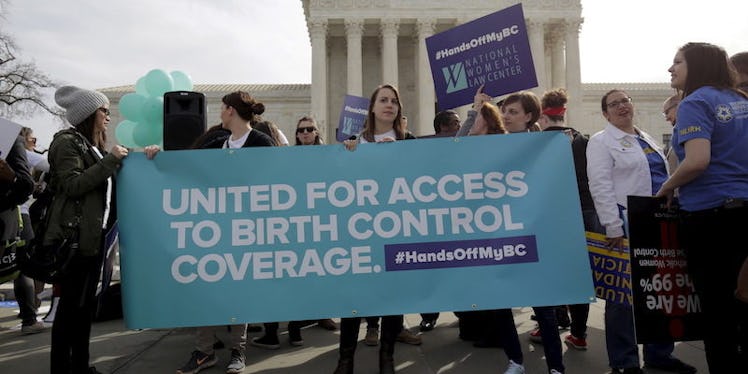
Women Who Live In 'Contraceptive Deserts' In The US Still Can't Get Birth Control
It was a huge, groundbreaking moment in history back in 2010 when the Affordable Care Act forced all insurance companies to cover birth control for women in the United States.
But sadly, we need to hold the applause. There is still a nation-wide epidemic that prevents millions of women from gaining access to birth control.
So where do these women lacking proper birth control options mainly live? They reside in counties understandably deemed "contraceptive deserts."
Contraceptive deserts are places in the United States that don't have "one public health clinic per 1,000 women who need government funded birth control."
Shocking, I know, but according to a study led by the National Campaign to Prevent Teen and Unplanned Pregnancy, nearly 20 million American women (ages 13-44) who are in need of publicly funded birth control don't have access to any health care clinics that can provide them with proper contraceptives.
That means only one woman in 50 women have easy access to birth control.
Only one woman in 50 women have easy access to birth control.
What's even worse? More than 10 million women in the country (almost 3 million of whom need birth control that's publicly funded) live in counties with zero clinics that give them any options for contraceptives.
Other areas, like many places in the midwest, don't have clinics offering IUDs and implants, which are not only some of the most effective methods of birth control, but they also require little maintenance and are at a much lower risk for human error.
"When women have the full range of access to all contraceptive methods, rates of unplanned pregnancy plummet," National Campaign CEO Ginny Ehrlich said in a press release. "That is why we need to ensure that all women can easily access the contraceptive method right for them — no matter who they are or where they live.”
The ability to avoid unwanted pregnancy should never be a privilege. It's a right.
According to another study out of the University of Texas, only 12 percent of women in Texas (a state particularly lacking in clinics offering birth control options) don't experience obstacles in getting contraceptives.
Jaw-dropping and infuriating, I know.
The ability to avoid unwanted pregnancy should never be a privilege. It's a right all women deserve to have, regardless of where they live. And to be in control of their reproductive health, without limitations, all women need to have easy access to birth control.
And most Americans rightfully agree. In a poll by the National Campaign, 81 percent of the general public supported the opinion that women everywhere should have access to all types of birth control.
It's time to fill these contraceptive deserts with trustworthy health care clinics that not only provide multiple birth control methods, but also educate women, so they can make smart, informed choices about reproductive health.